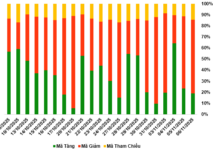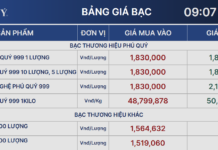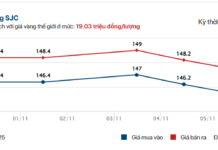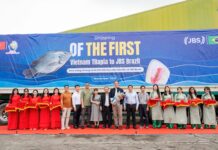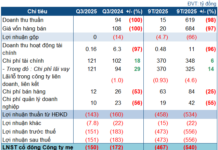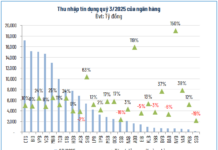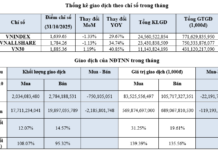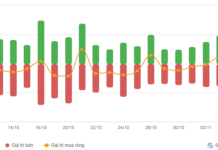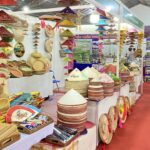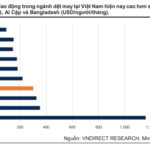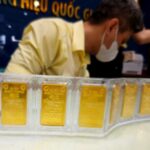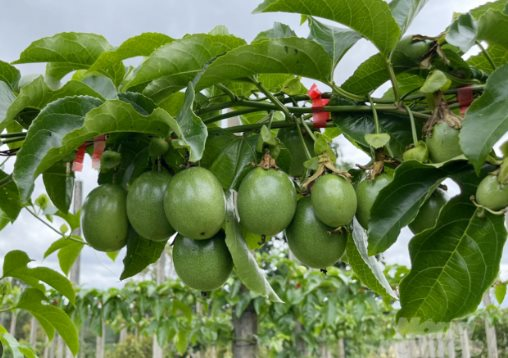For many rural residents, the image of lotus ponds in the off-season is often associated with decaying, golden-hued leaves, left to waste or rot away. However, in recent years, these seemingly discarded leaves have become a valuable resource, opening up new economic opportunities for many localities.
Lotus Leaves: From Waste to Creative Resource
In the past, lotus plants were primarily harvested for their seeds, rhizomes, and flowers, while lotus leaves had little commercial value and were only used for wrapping rice cakes or keeping sticky rice warm. But with the rise of circular economics and sustainable fashion, lotus leaves have found a new lease of life.
Thanks to special processing techniques that preserve their color, flexibility, and tear resistance, lotus leaves have made their way into the handicraft industry. They are now used to create unique and culturally rich products such as conical hats, handbags, wallets, fans, and lanterns.
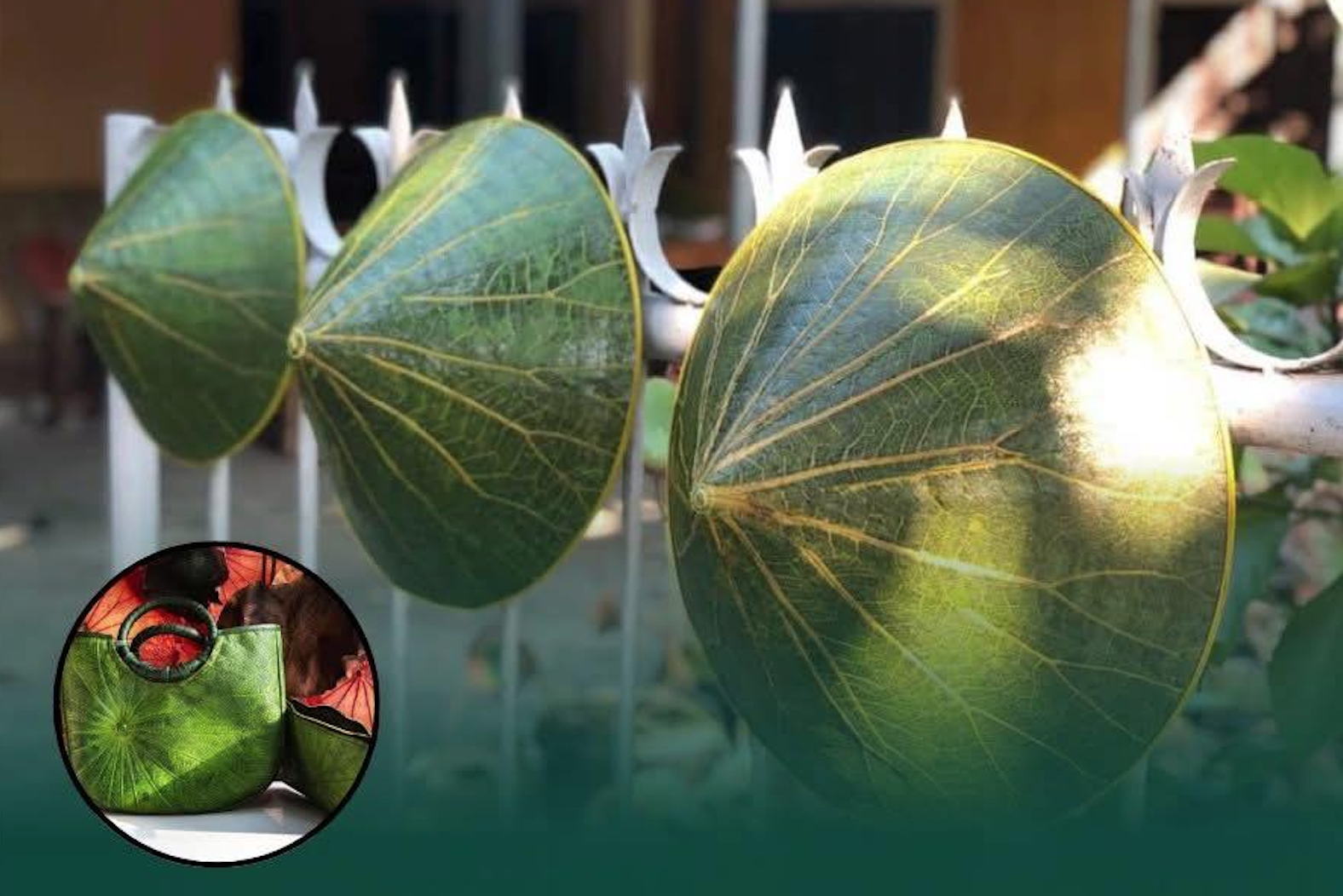
Products made from lotus leaves (illustrative image).
In Hue, artisan Nguyen Thanh Thao is a pioneer in transforming lotus leaves into conical hats. After years of experimentation, he has mastered the art of treating the leaves to create durable, aesthetically pleasing hats that retain the natural veins of the lotus leaf. His innovative product quickly gained recognition, winning the “Innovation Startup” award in Hue and even being exported to Thailand.
Thao’s creativity doesn’t stop at hats; he has also developed a range of handbags, fans, and decorative lamps from lotus leaves, helping to showcase Hue’s lotus culture to the world.
Also in the ancient capital, Ho Suong Lan shifted her focus from tourism to handicrafts during the COVID-19 pandemic. She combines lotus leaves with bang grass to create stylish handbags and wallets with a unique aesthetic appeal. These products have quickly become popular souvenirs, providing stable additional income for many craft workers.
In Dong Thap, the startup Ecolotus takes a different approach by producing environmentally friendly lotus leaf handbags. Their products not only showcase fashion but also promote a green lifestyle and reduce plastic waste. Ecolotus, launched in 2020, has already garnered attention from domestic and international markets.
Economic Value and Community Impact
The above models demonstrate how lotus leaves, once considered waste, have generated new income streams for farmers and artisans. Lotus growers no longer discard the leaves, while craft villages have access to a creative new resource, elevating the value of local products.
More importantly, this success underscores the value of circular economics—maximizing resource utilization, turning waste into something useful, creating jobs, and protecting the environment.
The Masterful Wordsmith: Crafting a Captivating Title
“The Artful Pen: Elevating Words, Inspiring Nations”
Vice Prime Minister Nguyen Hoa Binh has signed a decision to establish a State-level Council for the fifth time to bestow the titles of “People’s Artisan” and “Meritorious Artisan” in the field of handicrafts.


